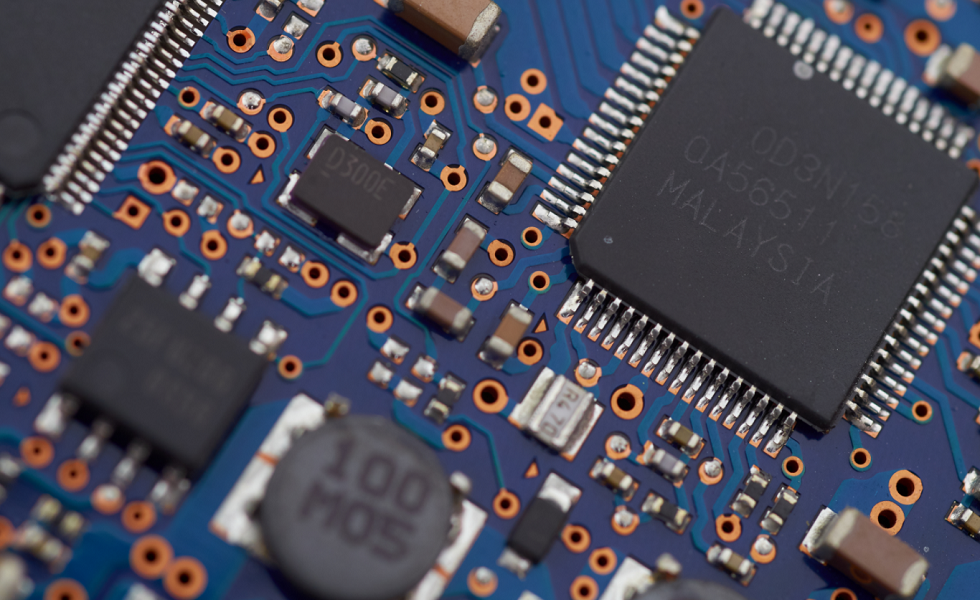Swissquote Bank: Chip stocks extend rally despite waning appetite

The news of fresh deals is coming in from the Middle East as Donald Trump seems very successful in getting the oil- and gas-rich countries to buy stuff from the US – including chips and planes – but appetite for trade optimism is starting to show signs of exhaustion. Despite the announcement of a $243bn deal with Qatar on top of the $600bn deal with Saudi Arabia, the S&P500 traded flat on Wednesday.
Big Tech stocks, including Nvidia and AMD, continued their rally at full speed – with Nvidia adding another 4% and AMD another 4.70%. Super Micro Computer jumped 15% yesterday on the announcement of a multi-year partnership agreement with Saudi Arabian DataVolt, and CoreWeave – the new AI play in town backed by Nvidia, remember – jumped to the highest levels since its IPO after announcing a 420% revenue growth in Q1.
In summary, the latest news and reports – and the market reaction – cement the idea that AI is a developing story that had remained in the dust but continues to attract funds as the dust settles. But sentiment elsewhere is waning. Gains at Meta remained limited to 0.51%, and Apple couldn’t extend gains – even on the news that it is bringing a technology that will allow us to scroll with our eyes in its new headsets. The stock price fell 0.28% yesterday, while Amazon retreated 0.53% on lingering worries that the trade war is still on, that the 30% tariffs on Chinese goods remain high, and there has been little-to-no progress with the EU.
What now?
Trade optimism is waning despite encouraging de-escalation with China and actual trade deals with the Middle East. Although the latter gives support to some industries – and I’m also looking at you, Boeing – looming uncertainties remain on the back of investors’ minds, and the narrative of a slowing US economy with rising price pressures remains the base theme. The US dollar remains under pressure from a soft economic outlook.
An avalanche of economic data will be in focus today. Among them, we will closely watch the April retail sales, the evolution of producer prices for the same month, the Philly Fed and NY Empire manufacturing data, and, of course, the weekly jobless figures.
Softer sales and activity figures would normally boost the Federal Reserve (Fed) doves, pull yields lower, and support equities (a typical ‘the good news is bad news’ reaction). But given the rising US inflation expectations, weak sales and manufacturing data would rather increase stagflation bets. Therefore, good news would be good news for the market, cementing the resilience of the US economy, whereas soft economic data would be bad news for risk appetite and could stall the rally.
Note that small- and mid-cap stocks are more sensitive to US yields – so despite bets that they could play catch-up with large-cap indices, the strength of US yields will certainly be a barrier to a strong rally.
Now moving to China...
Tencent announced slightly better-than-expected revenue in Q1. Its net profit grew 82% compared to the same period last year – but still fell short of analyst expectations – while the company announced a $6.7bn stock buyback and plans to invest double-digit amounts into AI. The last bit is important for tech investors. The company spent $4bn on AI last quarter – up more than 90% from a year ago – and will continue to do so.
Tencent’s share price has been rebounding since last year, though the rebound has been bumpy with periods of hesitation and selloffs. But about two-thirds of the post-2021 crackdown losses have been recovered, and AI should help the company aim for fresh highs, especially since Tencent remains cheap – very cheap – compared to its American peers. Its P/E ratio is just around 22.
Speaking of earnings, Alibaba will announce its own results later today, and the focus will be on AI and cloud revenues. Note that Alibaba has been slower to recover from the post-crackdown losses, having only regained about a third of the 2020–2022 decline. But among Chinese tech stocks, it's probably the most promising when it comes to AI. Not only does the company develop its own language models and offer cloud services, but it also has a very large e-commerce platform, financial services where it could apply its models, and a huge amount of data in hand to fine-tune its technology to its needs. And the stock is trading at a P/E ratio of around 21.
All in all, the Chinese AI story is developing. It’s helping Chinese tech companies extend their rally, even though the rallies are interrupted by hesitation and trade worries. The fact that China cannot afford to miss the technology rally – and signs that they can still innovate despite chip restrictions – means that China could gain technological independence. I believe that’s the ultimate goal, which would then make Chinese tech stocks an excellent diversification opportunity for investors willing to stomach Chinese regime risk.
At the same time, politics across the Pacific are looking much shakier for the next 3.5 years...
In energy
The news that Iran is ready to curtail its nuclear program in exchange for sanctions relief is weighing on oil prices for the second session. The barrel of US crude eased below the $61.50/bbl level this morning on the back of rising Iranian supply prospects – which add to OPEC’s oil restoration plans – versus a fragile improvement in demand prospects.
From a technical perspective, oil remains in a bearish trend with solid resistance seen at the 50-DMA near $64.20 and the major 38.2% Fibonacci retracement on the YTD decline at the $65.30 mark. Note that Goldman Sachs suggests Trump wants oil at the $40–50 level. He’ll likely get what he wants in the second half of the year.
